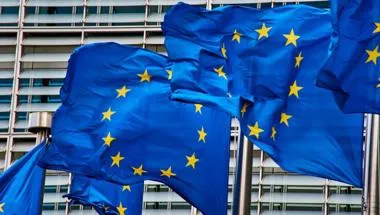
Biography
Alberto is a former PhD student in the Department of European and International Studies at King's College London. He has an initial background in economics and business administration (bachelors and masters in the Catholic University of Portugal), including two stints as a business consultant and working for a French multinational bank in Paris.
After that, he decided to delve further into his lifelong passion for international politics, getting a masters from the University of Lisbon and gaining two work experiences in Portuguese embassies: six months as an intern in the Portuguese Representation to the OECD and one year as a political analyst in the Portuguese Embassy to the USA.
Before starting his PhD in King’s, he collaborated with two different Portuguese associations for the study of international relations and politics, which included the writing and publication of one working paper and one article.
Doctoral Research
The topic of Alberto’s doctoral research is the German European policy in the decade between 2008 and 2018 – the EU’s ‘crisis decade’. Its main research question will be: Given the political and economic predominance Germany is considered to have in the EU/Eurozone, does it constitute, or not, a (regional) 'hegemon'?
This research stands in the intersection of three different disciplines: German politics and in particular its EU policy; international relations theory and in particular the concepts of “hegemony” and “power”; foreign policy analysis and in particular its application to the German institutions/decision-makers in the chosen timeframe.
The theoretical focus is on the (re)definition and clarification of two main concepts: that of “hegemony” and “power”, when applied to the specific case of Germany’s role in Europe. With a deductive reasoning, the basic hypothesis, to be confirmed or rejected, is that a German regional hegemony exists within the EU/Eurozone in the last decade. Alberto posits that ‘hegemony’, for such an important concept in political science and international relations, remains often not fully understood, or understood in ways that not only differ but can even be contradictory. As such, Alberto’s main contributions shall be to arrive at a different definition of regional hegemony and to produce a rigorous academic study on the nature of German hegemony in the EU system (the main literature gap identified) which center on how German power actually works within the EU system.
Research interests
- German European and Foreign Policy
- French European and Foreign Policy
- Franco-German Relations
- European Union Defence and Foreign Policy
- Transatlantic Relations
- Geopolitics
Publications
- (2023) 'Deutschland als Hegemon in der Eurozone? Der „bestimmende Einfluss“ der deutschen ordoliberalen Ideologie'
- (2021) 'A Alemanha de Merkel durante e após a crise do euro: hegemonia relutante?' DOI: https://doi.org/10.23906/ri2021.70a03
- (2021) 'The dismantling of the West? Normative divisions, transatlantic tensions and the shifting of the global balance of power'
- (2020) 'Caminhando lentamente rumo a uma defesa europeia – a encruzilhada da UE entre os interesses da França e da Alemanha'
- (2021) 'Europe’s Hegemon? The Nature of German Power During Europe’s Crisis Decade'
- (2020)'Post-Brexit EU Defence Policy: Is Germany leading towards an EU Army?' E-International Relations.
- (2017) 'Paving the New Silk Road: The Evolution of the Sino-German Strategic Partnership'
- (2019) Compreender os nacionalismos na Europa do pós-Guerra Fria in R:I n.º 62 Junho | (tri-monthly magazine published by the Portuguese Institute of International Relations). DOI: https://doi.org/10.23906/ri2019.62a06
Research

The European Foreign Policy Research Group
The European Foreign Policy group looks at both EU as well as state foreign policies within Europe and their interconnections.

Centre for German Transnational Relations
The centre examines Germany's changing transnational role in the economic, political and cultural spheres. We study how the recent rise of Germany to a position as a 'reluctant hegemon' shapes European economies as well as the world economy.
News
Divisions remain among member states over plans for 'EU army'
The possibility of a fully-functioning EU army “remains distant” as member states grapple with conflicting priorities, according to a new paper.

Research

The European Foreign Policy Research Group
The European Foreign Policy group looks at both EU as well as state foreign policies within Europe and their interconnections.

Centre for German Transnational Relations
The centre examines Germany's changing transnational role in the economic, political and cultural spheres. We study how the recent rise of Germany to a position as a 'reluctant hegemon' shapes European economies as well as the world economy.
News
Divisions remain among member states over plans for 'EU army'
The possibility of a fully-functioning EU army “remains distant” as member states grapple with conflicting priorities, according to a new paper.

